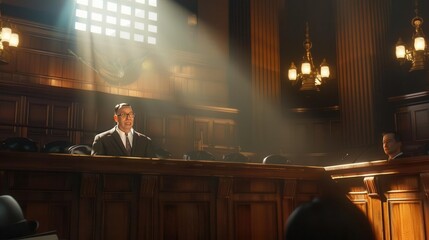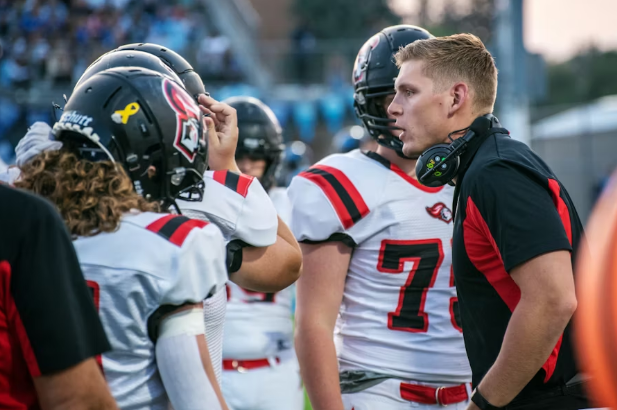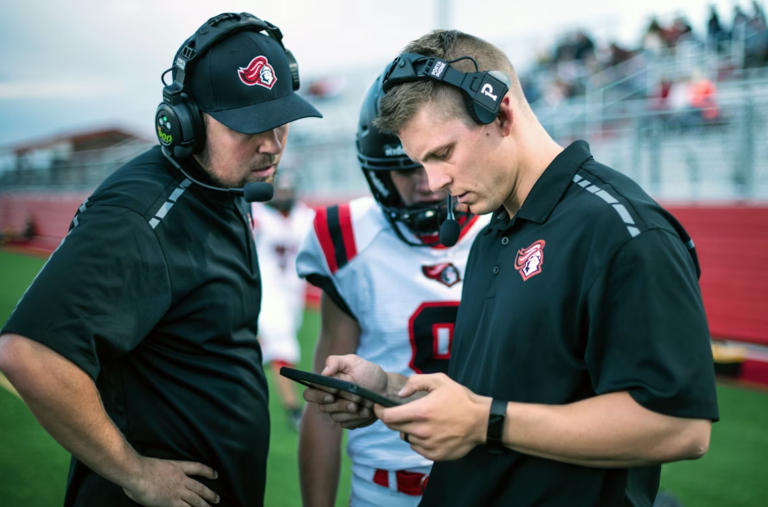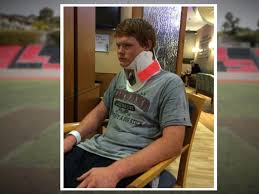
I have been serving as an Expert Witness in court cases since 2015. In the last decade I’ve been retained in about 35 cases, and have served on the side of the Plaintiff (usually a student or former student) and the side of the Defendant (a school district and or their staff) about half and half.
An Expert Witness provides their opinions in a lawsuit, based on their background, education and experience. The cases that I have worked on have been in athletics, hazing, sexual assault, grooming and staff/student relationships.
I thought that my readers would like to see what exactly an expert report looks like. The report is provided after a lawsuit has been working its way through the courts, usually for several years. An expert is provided all of the testimonies, police reports, investigative notes, pictures, videos, all of the evidence in the case, and then most determine what their opinions would be.
Obviously, I’m not going to post the entire report here, with the names of all parties involved. Although many times, a report can be found in court records, etc. as a part of the case files, my intent here is not to expose any coaches or the school district at the heart of this case. I’m going to keep it all very vague, even the type of sport that it was, and the state that it happened in. I want for coaches and administrators to simply learn about how one district ended up handling a case like this, and losing millions of dollars. Far more importantly, the lives of student-athletes were negatively impacted in some very serious ways.
Here is a redacted and shortened version of my 7,000 word report.
I have been retained to provide an expert opinion on incidents involving a high-school (enter sport here) program during the (enter school year) season. This report evaluates the conduct of the defendants — Head Coach (John Doe 1), Assistant Coach (John Doe 2), Athletic Director (John Doe 3), Principal (John Doe 4), Superintendent (John Doe 5), and the School District — in relation to allegations of bullying, hazing, and sexual assault raised by three student-athletes (Plaintiff 1, Plaintiff 2, and Plaintiff 3).
The analysis is based on complaints, interrogatory answers, audio recordings of the plaintiffs, text messages, school policies, personnel files, depositions, and the opposing expert report. Plaintiffs allege systemic failures in oversight, supervision, and response that created a toxic environment and enabled physical and sexual assaults during practices and two school-sponsored overnight trips (enter year, month here and here).
Qualifications
– Bachelor’s degree (1999) and Master’s degree in Coaching and Athletic Administration (2010)
– Certified Athletic Administrator (NIAAA)
– Former President, California Coaches Association (2018-2021)
– Current high-school principal; prior roles include athletic director, assistant principal for athletics/discipline, and head football coach
– 29 prior expert retentions (16 plaintiff, 13 defense); deposed 12 times, testified at trial 3 times
– Expertise in appropriate high-school athletic practices, supervision of minors, coaching standards, and administrative oversight of athletic programs
Methodology
I reviewed thousands of pages of documents, hours of audio recordings, depositions, policies, and photographs provided by retaining counsel. This is the largest and most complete file I have received in nine years of expert work.
Background & Key Incidents
Plaintiff 1 (junior varsity student-athlete with disabilities), Plaintiff 2 (varsity student-athlete), and Plaintiff 3 (junior varsity student-athlete) endured repeated physical assaults, hazing, and sexual assaults by upperclassmen. Documented incidents include:
– Daily practices: aggressive “games” (“slap back,” “target”) causing bruises and intimidation, often in coaches’ presence without intervention
– Month, Year overnight trip: coaches permitted unsupervised mall visit; students purchased sex toys; upperclassmen later sexually assaulted Plaintiff 2 with a dildo, recorded it, and distributed the video on the team Snapchat group
– Month, Year overnight trip (state playoffs): despite knowledge of the prior sexual assault, no bag checks, room checks, or increased supervision occurred; upperclassmen tased multiple freshmen (including all three plaintiffs) in hotel rooms while Head Coach (John Doe 1), Assistant Coach (John Doe 2), Athletic Director (John Doe 3) consumed alcohol in the lobby
– Administrative response: delayed investigation, no confiscation of dangerous items, no immediate removal of offending students from trips, and only minor discipline (written reprimands for coaches drinking) until public pressure forced resignations one month later
Expert Opinions
Opinion 1 – Lack of Institutional Control
The district and high-school leadership failed to prioritize student-athlete safety due to absence of institutional control. No written overnight-trip policy existed; supervision relied on “common sense.” Coaches ignored directives (e.g., contacting wrestlers while on leave), yet faced no meaningful consequences. Failure to require or review annual team rules, conduct coaching evaluations, or provide specific hazing/supervision training violated district policy and State standards (State Code redacted).
Head Coach’s Conduct: Head Coach (John Doe 1) exhibited a belief in his autonomy from district oversight. For example, he disregarded a directive not to communicate with wrestlers during his administrative leave, contacting a student to discuss the incidents and asking if they “still had beef.” Superintendent (John Doe 5) acknowledged this violation, stating, “This puts us in a bad spot,” but took no immediate action, indicating a failure to enforce accountability.
Failure to Enforce Discipline: Despite allegations of misconduct, Head Coach (John Doe 1) was allowed to continue teaching math and weightlifting, interacting with students. Assistant Coach (John Doe 2) coached at a district event despite being on leave, further evidencing a lack of control.
Opinion 2 – Failure to Supervise the Coaching Staff
Administration did not adequately train, evaluate, or oversee coaches. No evidence shows annual coaching evaluations were performed despite policy requiring them. No travel supervision protocols existed until after the second set of assaults. Post-incident communications between Head Coach (John Doe 1), Assistant Coach (John Doe 2), Athletic Director (John Doe 3) focused on program image rather than student welfare. This negligent supervision of the coaching staff breached district handbooks and State Code redacted.
Failure to Enforce Rules: The District Coach’s Handbook requires team rules to be submitted, but no such rules were provided for the sports program for several years, up to as many as eight. This lapse allowed unchecked activities between student-athletes which unnecessarily injured student-athletes.
Assistant Coach (John Doe 2) said that his evaluation was a “mutual evaluation.” This is not a proper way to evaluate your coaches. There is no evidence that the Athletic Director did any sort of evaluation of coaches.
Opinion 3 – Coaching Staff Neglected Duty to Supervise Students
Head Coach (John Doe 1), Assistant Coach (John Doe 2) were present for dangerous practice “games” yet failed to intervene. On the Month, Year trip they learned of sex-toy purchases but conducted no bag searches and took no preventive action. On the Month, Year trip they performed no room checks and consumed alcohol while students were being tased. These actions/inactions fell well below the standard of care required by the Coach’s Handbook, State High School Athletic regulations, and State Code redacted.

Opinion 4 – Negligent Acts by School Personnel Enabled a Breeding Ground for Harassment, Bullying and Sexual Assault
Known risks (prior complaints of choking/punching, Month, Year; sex-toy purchase and sexual assault, Month, Year) were ignored. No preventive measures (bag checks, separate rooms separation, removal of offenders from trips) were implemented before the Month, Year trip. Multiple parental complaints were dismissed or minimally addressed. Retention of Head Coach (John Doe 1) in a teaching role after credible sexual-assault allegations further endangered students. These omissions constitute negligence under State Code redacted and district policy.
Assistant Coach (John Doe 2) had an opportunity to intervene when he heard student-athletes talking about purchasing a dildo on the Month, Year trip. He testified to hearing “students laughing and saying something about a dildo and that kind of obviously piqued my attention.” However he failed to search their shopping bags that he clearly saw. This failure to supervise enabled student-athletes to sexually assault a minor with a dildo. Further, Assistant Coach (John Doe 2) reported this conversation to the Head Coach (John Doe 1) who also failed to take any action to make sure the student-athletes did not have anything like a dildo with them in the hotel.
Opinion 5 – Toxic Environment Below the Standard of Care
A culture of intimidation, degrading nicknames, forced hazing type of “contracts” among student-athletes and physical/sexual humiliation was permitted to flourish. Staff used or tolerated derogatory language and, rather than correct the culture, attempted to conceal evidence (ordering deletion of Snapchat group). The complete absence of enforceable team rules and administrative presence at practices allowed the toxic environment to persist, violating the Student Handbook and State hazing statutes.
Toxic Culture: Principal (John Doe 4) described the team’s culture as “toxic” in several of his recorded interviews with student-athletes during his investigation, citing a pattern of intimidation. Upperclassmen used degrading nicknames and humiliated freshmen on the Month, Year bus with crude and inappropriate sexual and suggestive jokes.
Plaintiff Impact: Plaintiff 1 (junior varsity student-athlete with disabilities) was coerced into a “contract” prohibiting eye contact and mandating head shaving, and was tased . Plaintiff 2 (varsity student-athlete) suffered physical and sexual assaults, leading to anxiety and isolation. Plaintiff 3 (junior varsity student-athlete) was tased, sexually assaulted and bullied.
Opinion 6 – Failure to Protect Vulnerable Student-Athletes
The district breached its non-delegable duty to provide reasonable safety. Inadequate selection, training, supervision, and evaluation of coaches, combined with inaction after repeated red flags, directly enabled physical injuries (bruises, taser marks), sexual assaults, and severe psychological trauma to the plaintiffs.
The lack of supervision enabled physical assaults (e.g., tasing, choking) and sexual abuse (e.g., dildo assault), causing bodily injury, psychological trauma, and loss of dignity.
Conclusion
The cumulative breaches — failure to supervise practices and overnight trips, failure to report or investigate assaults, failure to enforce policies, and failure to address known risks — created and sustained an environment in which bullying, hazing, and sexual assault were foreseeable and preventable. These failures violated State Codes redacted, district handbooks, and nationally recognized coaching/administrative standards. But for these systemic lapses, the plaintiffs’ injuries would not have occurred.
These opinions are based on the materials reviewed to date. I reserve the right to supplement or modify them if additional evidence is produced.
END OF REPORT
I hope that all readers have learned something about protecting students! And I hope that you have learned about the process that an Expert Witness uses to develop their opinions in a case.
Chris Fore is a veteran Administrator, Athletic Director, and Head Football Coach from Southern California; he currently serves as a Principal. He has written four books and produced coaching manuals, available at EightLaces.org. Both schools where he served as Athletic Director set school records for championships won in a single school year, and were recognized for both sportsmanship and academic excellence. Fore holds a Master’s in Coaching and Athletic Administration and multiple education credentials. A Certified Athletic Administrator, he served as President of the California Coaches Association (2018–2021) and has held various other leadership roles in several different organizations. A sought-after speaker, Fore has contributed to national sports publications and appeared on radio and podcasts. He also serves as an expert witness in athletic lawsuits. Follow him on X!


